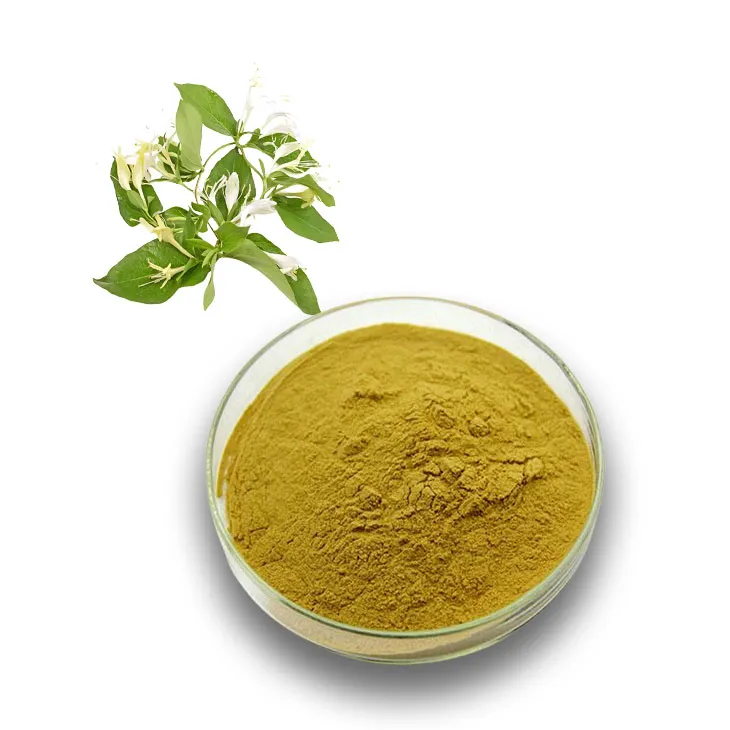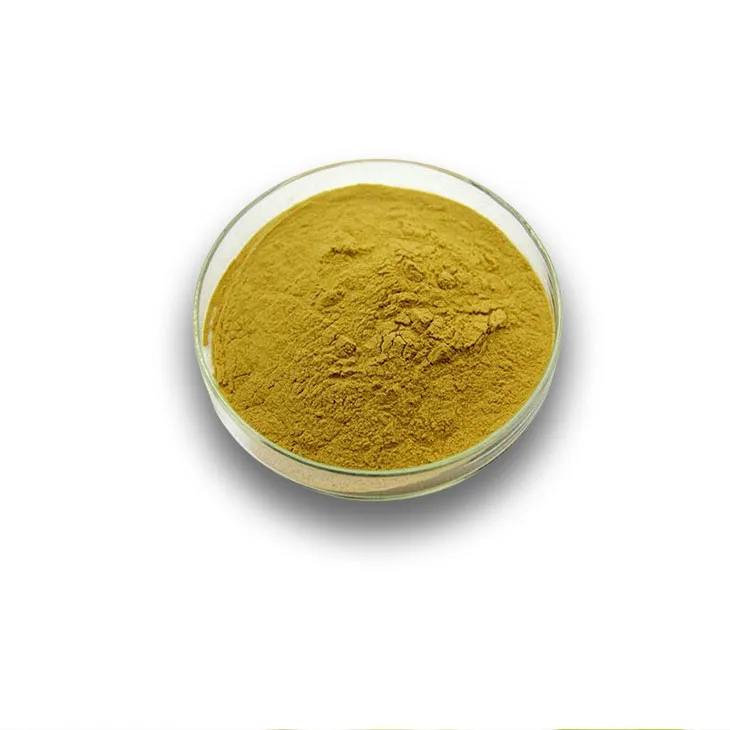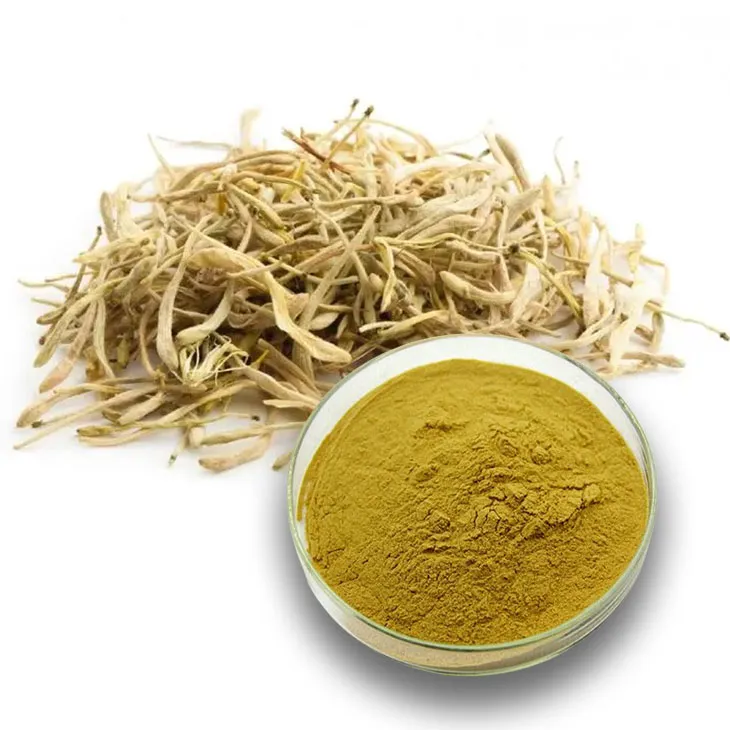- 0086-571-85302990
- sales@greenskybio.com
Honeysuckle pollen: Should you use it for skin care?
2024-11-13

1. Introduction
In the world of skin care, natural ingredients are increasingly sought after for their potential to nourish, protect, and enhance the skin's appearance. Honeysuckle Pollen has emerged as an ingredient that has caught the attention of many. This article will take a comprehensive look at Honeysuckle Pollen in the context of skin care, exploring its various aspects such as nutrient content, effects on different skin types, and considerations regarding its extraction and purity.

2. Nutrients in Honeysuckle Pollen
Honeysuckle pollen is rich in a variety of nutrients that could potentially benefit the skin.
2.1 Vitamins
It contains vitamins such as vitamin C, which is well - known for its antioxidant properties. Vitamin C helps in protecting the skin from free radical damage, which can cause premature aging, wrinkles, and dull skin. Additionally, it may also play a role in collagen synthesis, which is essential for maintaining the skin's elasticity.
2.2 Minerals
Minerals like zinc are also present in honeysuckle pollen. Zinc has anti - inflammatory properties and can help in reducing skin inflammation, which is beneficial for those with acne - prone or sensitive skin. It also aids in wound healing, which can be useful for skin that has been damaged due to various factors such as sunburn or minor cuts.
2.3 Amino Acids
Amino acids are the building blocks of proteins, and honeysuckle pollen contains several essential amino acids. These amino acids are important for maintaining the health of the skin cells. They can contribute to the repair and regeneration of skin tissue, helping to keep the skin looking fresh and youthful.

3. Impact on Different Skin Types
The effects of honeysuckle pollen on the skin can vary depending on the skin type.
3.1 Normal Skin
For normal skin, honeysuckle pollen can act as a general nourishing agent. It can provide the skin with additional nutrients, enhancing the skin's natural glow. The antioxidants present in the pollen can help in maintaining the skin's health and preventing potential damage from environmental factors.
3.2 Dry Skin
Dry skin can greatly benefit from the moisturizing and nourishing properties of honeysuckle pollen. The amino acids and vitamins in the pollen can help in hydrating the skin cells from within, improving the skin's moisture retention ability. This can result in a reduction of dryness, flakiness, and roughness, leaving the skin feeling soft and supple.
3.3 Oily Skin
Despite what one might expect, honeysuckle pollen can also be beneficial for oily skin. The zinc in the pollen can help in regulating sebum production. By controlling the amount of oil produced by the skin's sebaceous glands, it can reduce the appearance of shine and also help in preventing clogged pores, which can lead to acne breakouts.
3.4 Sensitive Skin
Sensitive skin requires gentle and non - irritating ingredients. The anti - inflammatory properties of honeysuckle pollen, mainly due to the presence of zinc, can be soothing for sensitive skin. It can help in reducing redness, itching, and irritation, making it a potentially suitable ingredient for those with sensitive skin.

4. Extraction and Purity Considerations
When considering using honeysuckle pollen for skin care, the methods of extraction and the purity of the pollen are crucial factors.
4.1 Extraction Methods
There are different extraction methods for honeysuckle pollen. Traditional methods may involve manual collection and simple drying processes. However, modern extraction techniques often aim to preserve the integrity of the nutrients in the pollen. For example, some extraction methods use cold - pressing or supercritical fluid extraction. These methods are designed to extract the beneficial components of the pollen while minimizing the degradation of the nutrients.
4.2 Purity
Ensuring the purity of honeysuckle pollen is essential. Pollen can be contaminated with other substances such as dust, pollen from other plants, or pesticides if not properly sourced. High - quality skin care products containing honeysuckle pollen should have strict quality control measures in place to ensure the purity of the pollen. This may involve sourcing the pollen from clean, unpolluted environments and conducting thorough testing for contaminants.

5. Potential Side Effects
While honeysuckle pollen has many potential benefits for the skin, it is also important to be aware of potential side effects.
5.1 Allergic Reactions
Some individuals may be allergic to honeysuckle pollen. Allergic reactions can range from mild skin irritation, such as redness and itching, to more severe symptoms like swelling or difficulty breathing. People with known pollen allergies should be cautious when using products containing honeysuckle pollen. Before using any new skin care product with this ingredient, it is advisable to conduct a patch test on a small area of the skin.
5.2 Interaction with Other Ingredients
In skin care products, honeysuckle pollen may interact with other ingredients. For example, if combined with certain acids or retinoids, it could potentially cause irritation or an unexpected reaction. It is important for skin care manufacturers to conduct compatibility tests when formulating products containing honeysuckle pollen.
6. Incorporating Honeysuckle Pollen into Your Skin Care Routine
If you decide to incorporate honeysuckle pollen into your skin care routine, there are several ways to do so.
6.1 Honeysuckle Pollen - Based Creams and Lotions
There are many skin care creams and lotions on the market that contain honeysuckle pollen. These products are formulated to deliver the benefits of the pollen to the skin. When choosing such a product, it is important to look for high - quality products with a good reputation. Read the product labels carefully to ensure that the pollen is sourced and processed properly.
6.2 DIY Skin Care with Honeysuckle Pollen
For those who prefer a more hands - on approach, it is possible to create your own skin care products using honeysuckle pollen. However, this requires careful handling and knowledge of skin care formulation.
- Face Masks: You can make a simple face mask by mixing honeysuckle pollen with a suitable carrier such as honey or yogurt. Apply the mixture to your face and leave it on for 10 - 15 minutes before rinsing off.
- Serums: Create a serum by dissolving honeysuckle pollen in a carrier oil like jojoba oil. This can be applied to the skin after cleansing and toning.
7. Conclusion
Honeysuckle pollen has the potential to be a valuable ingredient in skin care. Its rich nutrient content, positive effects on different skin types, and the possibility of incorporating it into various skin care products make it an interesting option. However, considerations such as extraction methods, purity, and potential side effects should not be overlooked. With proper research and caution, it may be a worthy addition to your skin care routine for those seeking natural and potentially effective skin care solutions.
FAQ:
1. What are the main nutrients in honeysuckle pollen relevant to skin care?
Honeysuckle pollen contains various nutrients relevant to skin care. It has vitamins such as vitamin C and vitamin E. Vitamin C is known for its antioxidant properties, which can help protect the skin from free radical damage. Vitamin E also acts as an antioxidant and can contribute to skin health by promoting skin repair and reducing inflammation. Additionally, it may contain flavonoids, which have anti - inflammatory and antioxidant effects on the skin, potentially helping to soothe irritated skin and improve the overall complexion.
2. Can honeysuckle pollen be used for all skin types?
While honeysuckle pollen can offer benefits for many skin types, it may not be suitable for all. For normal skin, it can potentially provide antioxidant protection and help maintain the skin's natural health. For dry skin, the nutrients in the pollen may assist in moisturizing and nourishing the skin. However, for those with very sensitive skin, there is a risk of allergic reactions. People with oily skin may also need to be cautious as it could potentially clog pores if not properly formulated. So, it is not a one - size - fits - fits - all solution for different skin types.
3. How is honeysuckle pollen extracted for skin care products?
The extraction of honeysuckle pollen for skin care products typically involves careful processes. One common method is mechanical extraction, where the pollen is gently separated from the flower. Another approach may involve using solvents in a controlled manner to extract the beneficial compounds. However, it is crucial to ensure that the extraction process is carried out under strict quality control to preserve the integrity of the pollen's nutrients and to avoid contamination. After extraction, the pollen extract is often purified and formulated into various skin care products such as creams, lotions, or serums.
4. What are the potential risks of using honeysuckle pollen in skin care?
There are several potential risks associated with using honeysuckle pollen in skin care. The most significant risk is the possibility of an allergic reaction. Some individuals may be allergic to pollen in general, and honeysuckle pollen is no exception. This can lead to skin rashes, itching, or swelling. Additionally, if the pollen is not extracted and purified properly, it may contain impurities or contaminants that could be harmful to the skin. There is also a concern that overuse of products containing honeysuckle pollen may disrupt the skin's natural balance, especially if the skin is sensitive or prone to breakouts.
5. How can one ensure the purity of honeysuckle pollen in skin care products?
To ensure the purity of honeysuckle pollen in skin care products, consumers should look for products from reliable and reputable brands. Reputable companies typically have strict quality control measures in place. They should ensure that the pollen is sourced from clean and unpolluted environments. Laboratory testing is also crucial to verify the purity of the pollen extract. This can include tests for the absence of contaminants such as pesticides, heavy metals, and other harmful substances. Additionally, proper packaging and storage of the skin care products containing the pollen are important to maintain its purity over time.
Related literature
- The Nutritional and Cosmetic Properties of Honeysuckle Pollen: A Comprehensive Review"
- "Honeysuckle Pollen in Skincare: Benefits, Risks and Quality Assurance"
- "Examining the Role of Honeysuckle Pollen Extracts in Skin Health"
- ▶ Hesperidin
- ▶ Citrus Bioflavonoids
- ▶ Plant Extract
- ▶ lycopene
- ▶ Diosmin
- ▶ Grape seed extract
- ▶ Sea buckthorn Juice Powder
- ▶ Fruit Juice Powder
- ▶ Hops Extract
- ▶ Artichoke Extract
- ▶ Mushroom extract
- ▶ Astaxanthin
- ▶ Green Tea Extract
- ▶ Curcumin
- ▶ Horse Chestnut Extract
- ▶ Other Product
- ▶ Boswellia Serrata Extract
- ▶ Resveratrol
- ▶ Marigold Extract
- ▶ Grape Leaf Extract
- ▶ New Product
- ▶ Aminolevulinic acid
- ▶ Cranberry Extract
- ▶ Red Yeast Rice
- ▶ Red Wine Extract
-
Hericium erinaceus extract powder
2024-11-13
-
Black Garlic Extract
2024-11-13
-
Lemon Balm Extract
2024-11-13
-
Eucommia Ulmoides Extract
2024-11-13
-
melatonin extract
2024-11-13
-
White Willow Bark Extract
2024-11-13
-
Soy Extract
2024-11-13
-
Chia Seed Powder
2024-11-13
-
Artichoke Leaf Extract
2024-11-13
-
Berberis aristata Extract
2024-11-13





















